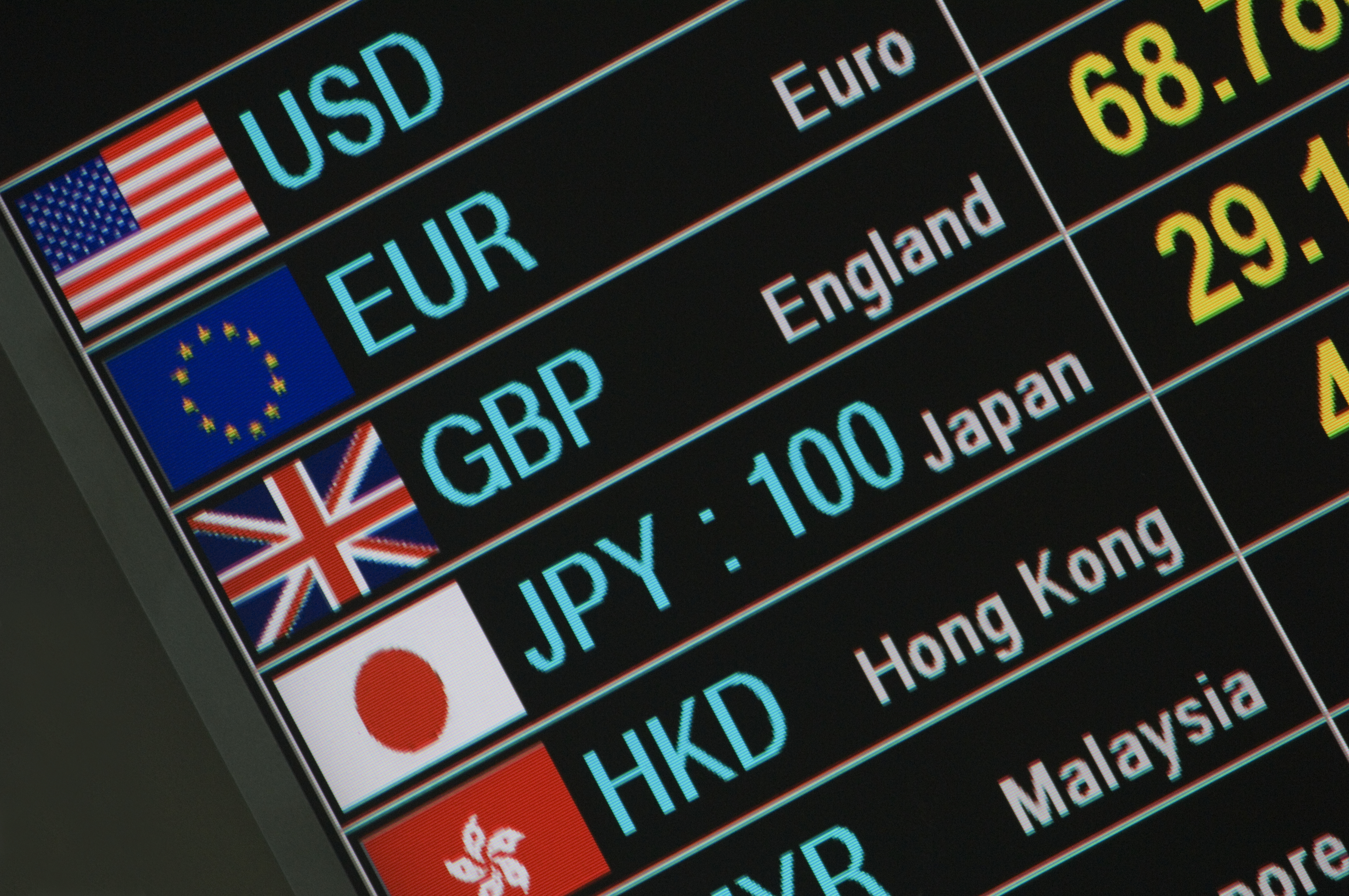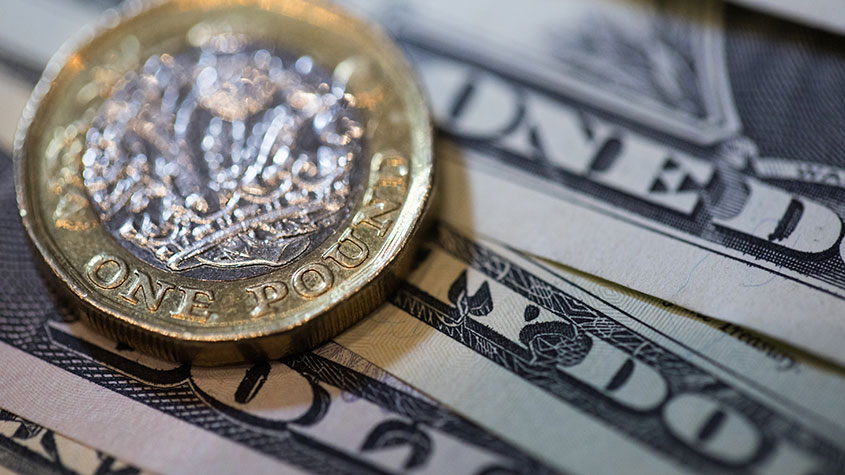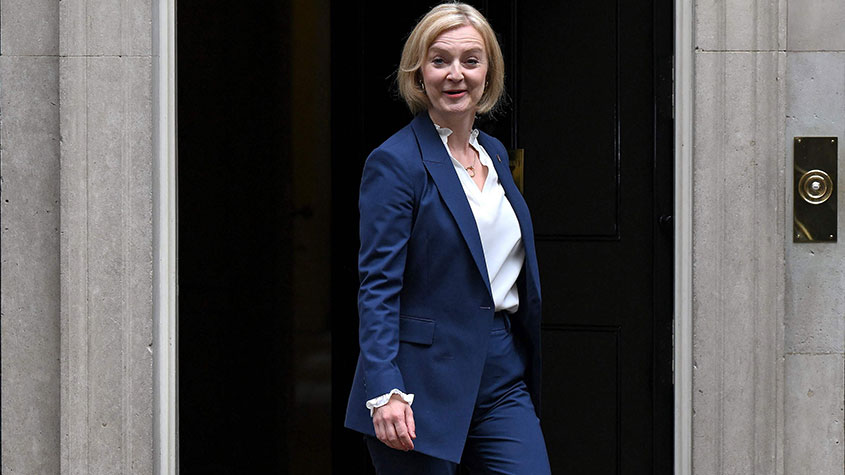International Consolidated Airlines: a buy for the brave
International Consolidated Airlines, BA’s parent company, is dirt cheap and well placed to recover. Here's how to play it.


Get the latest financial news, insights and expert analysis from our award-winning MoneyWeek team, to help you understand what really matters when it comes to your finances.
You are now subscribed
Your newsletter sign-up was successful
Want to add more newsletters?

Twice daily
MoneyWeek
Get the latest financial news, insights and expert analysis from our award-winning MoneyWeek team, to help you understand what really matters when it comes to your finances.

Four times a week
Look After My Bills
Sign up to our free money-saving newsletter, filled with the latest news and expert advice to help you find the best tips and deals for managing your bills. Start saving today!
The airline industry has borne the brunt of the financial fallout from the coronavirus. Countries around the world have imposed various degrees of restrictions on flights, from screening and quarantines to outright bans; even where planes are still allowed to fly, demand has fallen so far that airlines have voluntarily cancelled flights.
The industry seems to be facing a crisis much worse than the 2003 outbreak of Sars or the global financial crisis of 2008/2009. Indeed, some experts are predicting that, unless things improve, the entire industry could find itself bankrupt by May.
A nosedive too far
It is no surprise, then, that shares in International Consolidated Airlines Group (LSE: IAG), the parent company of British Airways, have fallen by nearly 60% from the peak of 646p in January to the current level of 259p. However, this is an overreaction. Firstly, it’s still very unlikely that this crisis could force IAG into bankruptcy. While some of its costs are fixed irrespective of how many flights it operates, others, such as fuel, can be drastically cut back under a nightmare scenario of a prolonged grounding, or at least deferred until normal service has been resumed. The company could also save money by suspending the dividend.
MoneyWeek
Subscribe to MoneyWeek today and get your first six magazine issues absolutely FREE

Sign up to Money Morning
Don't miss the latest investment and personal finances news, market analysis, plus money-saving tips with our free twice-daily newsletter
Don't miss the latest investment and personal finances news, market analysis, plus money-saving tips with our free twice-daily newsletter
Russ Mould of AJ Bell estimates that even if it were to operate at 20% capacity for the next 12 months, a far longer period of disruption that most experts are predicting, it would still only lose around £5bn. While this is a huge amount, IAG has more than £9bn of liquidity, enabling it to survive even an 18-month shutdown.
The fact that CEO Willie Walsh has said IAG will not be seeking government support, in contrast to most other airlines around the world, suggests that the management is confident that it will be able to survive the coming crisis.
If IAG does manage to pull through, it looks extremely cheap. According to the official estimates it is trading at only three times 2021 earnings. While next year’s earnings-per-share estimates are now clearly out of date, they do give an idea of what will happen when things return to normal. Mould also points out that the fact that IAG is in a better financial position than its rivals, especially those in Europe, means that it could benefit from a reduction in the number of competitors, something that Mould thinks is needed to cut the industry’s overcapacity.
I suggest that you go long on IAG at the current price of 227p at £16 per 1p. With a stop loss of 96p, this gives you a downside of £2,096. This is a much wider and deeper stop loss than I normally recommend. However, it reflects the extremely volatile market and the short bias of my portfolio: it has leeway for potential losses on IAG, thanks to current gains from shorting other stocks such as Uber and Boeing. Meanwhile, take profits from shorting Wayfair, which has fallen by 70% since I tipped it in issue 969.
Get the latest financial news, insights and expert analysis from our award-winning MoneyWeek team, to help you understand what really matters when it comes to your finances.

-
 Should you buy an active ETF?
Should you buy an active ETF?ETFs are often mischaracterised as passive products, but they can be a convenient way to add active management to your portfolio
-
 Power up your pension before 5 April – easy ways to save before the tax year end
Power up your pension before 5 April – easy ways to save before the tax year endWith the end of the tax year looming, pension savers currently have a window to review and maximise what’s going into their retirement funds – we look at how
-
 Why you should keep an eye on the US dollar, the most important price in the world
Why you should keep an eye on the US dollar, the most important price in the worldAdvice The US dollar is the most important asset in the world, dictating the prices of vital commodities. Where it goes next will determine the outlook for the global economy says Dominic Frisby.
-
 What is FX trading?
What is FX trading?What is FX trading and can you make money from it? We explain how foreign exchange trading works and the risks
-
 The Burberry share price looks like a good bet
The Burberry share price looks like a good betTips The Burberry share price could be on the verge of a major upswing as the firm’s profits return to growth.
-
 Sterling accelerates its recovery after chancellor’s U-turn on taxes
Sterling accelerates its recovery after chancellor’s U-turn on taxesNews The pound has recovered after Kwasi Kwarteng U-turned on abolishing the top rate of income tax. Saloni Sardana explains what's going on..
-
 Why you should short this satellite broadband company
Why you should short this satellite broadband companyTips With an ill-considered business plan, satellite broadband company AST SpaceMobile is doomed to failure, says Matthew Partridge. Here's how to short the stock.
-
 It’s time to sell this stock
It’s time to sell this stockTips Digital Realty’s data-storage business model is moribund, consumed by the rise of cloud computing. Here's how you could short the shares, says Matthew Partridge.
-
 Will Liz Truss as PM mark a turning point for the pound?
Will Liz Truss as PM mark a turning point for the pound?Analysis The pound is at its lowest since 1985. But a new government often markets a turning point, says Dominic Frisby. Here, he looks at where sterling might go from here.
-
 Are we heading for a sterling crisis?
Are we heading for a sterling crisis?News The pound sliding against the dollar and the euro is symbolic of the UK's economic weakness and a sign that overseas investors losing confidence in the country.